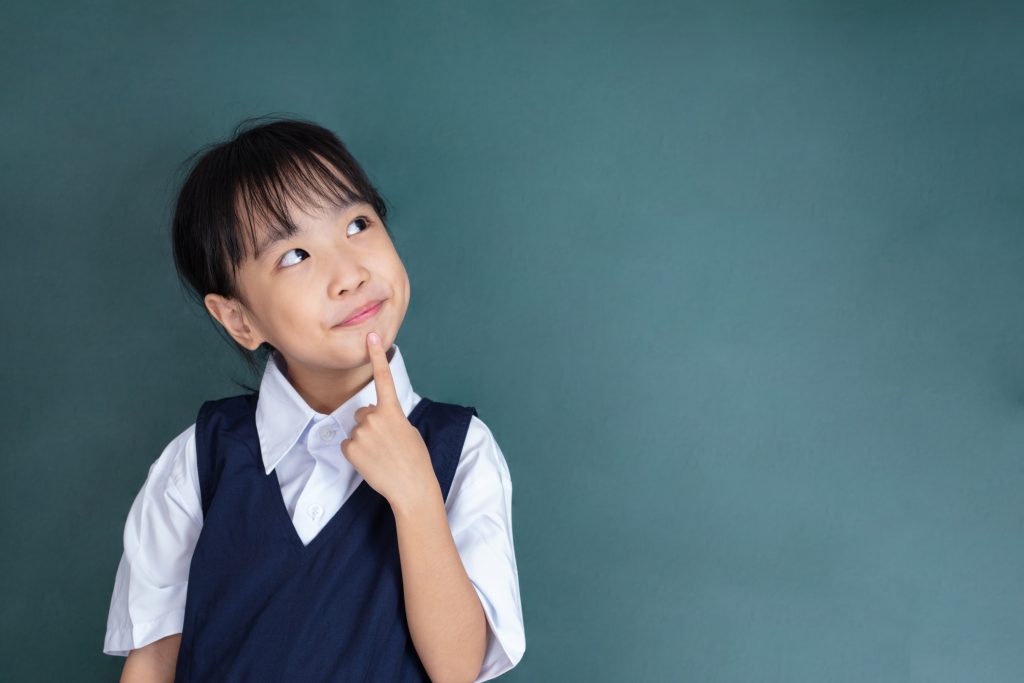No matter where you are in life, you may come across a topic that is difficult to grasp at some point.
It takes time to learn new things, but what if you don’t have much time?
We’ve assembled a list of study techniques to help you learn faster.
Read: How Remote Learning on Digital Age Works for Kids
1. Divide the data into manageable chunks.
This will allow you to process the information more quickly. If you’re learning a new language, for example, you might divide it into nouns, verbs, adjectives, and tenses.

A girl doing homework writing and reading at home. Credit: Ridofranz on iStock.
It makes the knowledge sound less confusing and gives you a plan for how to proceed with your studies. If you’re studying from a textbook, it may be already set up this way.
2. Make a list of small learning objectives for yourself.
To cover the most ground, make your goals precise and time-based.
It will help you break up the topic so you aren’t overwhelmed by a large body of information. You may also set smaller goals for yourself over the week to help you progress toward learning an entire subject.

A student writing on a notebook. Credit: sorrapong on iStock.
If you’re studying math, for example, set a target for yourself to master basic algebra by next week. Then you can progress to more difficult topics like calculus. In a textbook, you can also divide stuff up by chapters.
3. Make a mental note of everything.
This is one of the study techniques that will assist you in remembering the subject. It is much easier to research when you have good notes.
Pay attention to what is being said and write it down in your terms. Instead of using full sentences, write down key details in short phrases. Leave blank spaces in your notes for future comments or questions.
Instead of writing, “The food chain is a hierarchical series of organisms, each dependent on the next as a source of food,” you might write, “Food chain: series of organisms consuming one another.”

A girl thinking with a finger on her chin. Credit: hanapon1002 on iStock.
Develop a shorthand that is simple to write down and comprehend.
You might, for example, shorten catalyst to Cat, chromatography to Chrom, and stoichiometry to Stoich if you’re learning about chemistry concepts.
Write down your notes in stages while you’re taking notes about how to do something sequential, such as how to solve a math problem.
It would be easier to recall how to apply the same measures to various problems this way.
4. Instead of typing notes, write them down.
According to studies, taking notes by hand is one of the study techniques that helps to cement the knowledge in your mind. Try going back in time and pulling out a sheet of paper and a pencil.

A child taking notes. Credit: hanapon1002 on iStock.
If you want to keep track of your notes, write them up and save them on your computer later. Since writing notes by hand takes a little longer than typing them, it’s important to use phrases and shorthand.
5. If you’re stuck, ask some questions.
Having someone else describe it to you will help you learn more quickly. Don’t be afraid to ask questions if you don’t understand the main idea. Ask your teacher during online classes.

A student raising her hand in an online class. Credit: Kiwis on iStock.
If you’re on your own, consider Googling it or looking for advice on an online site. If you’re in higher education, you can get support from your teacher during office hours at any time during the school year.
6. Every day, spend 10 to 20 minutes studying the subject. Studying will assist you in learning the topic more quickly.
Long cram sessions don’t help you remember anything in the long run. Instead, strive to spread out your research time so that you get some work done every day.

The happy girl sitting at the desk with books. Credit: Artem Peretiatko on iStock.
Every evening, or whenever you have time, try to study for 10 to 15 minutes. According to studies, cramming a lot of information into your head right before an exam would only help you remember it in the short term.
You might not be able to spread your studying over several days if you’re short on time. If this is the case, make sure to take frequent breaks to allow your brain to relax.
Read: How to Apply Intentional Learning in a New Cognitive Age
7. Recite the details aloud.
After reading a portion of the material, explain what you’ve learned. You don’t have to speak to anyone; you can do this alone at home if you want. Speaking the details out loud will help you memorize them more quickly and retain them for longer.

A school girl is studying online. Credit: Artem Peretiatko on iStock.
After you’ve finished, double-check the details to make sure you’ve got it right. If you missed something or were having trouble in one place, go over it again.
8. Use a mnemonic device to help you remember facts.
Use one of this study techniques to quickly learn large chunks of knowledge.
For example, you might use Roy G. Biv’s mnemonic device to remember the colors of the rainbow (red, orange, yellow, green, blue, indigo, violet). It’s much easier to recall, so you’ll be able to memorize it and use it to remember things quicker.

Solving math problems. Credit: Wachiwit on iStock.
You may use the mnemonic device PEMDAS to remember the order of operations in math (parentheses, exponents, multiplication, division, addition, and subtraction).
9. Practice tests will allow you to put your skills to the test.
Practice exercises will help you figure out where you’re having trouble. Almost every subject has a plethora of practice tests available online.

A girl doing homework. Credit: Pornpak Khunatorn on iStock.
Make sure you double-check your responses and go through something you didn’t understand. You may also ask a classmate to double-check your responses.
Takeaway
These study techniques will not necessarily master you in the difficult subject, but they will pique your interest. And, if you’re going to have to learn the subject anyway, why not make it fun?
To solve this problem, a shift in mindset is needed. You must be able to see the larger picture and understand how your problem falls into it. Thinking about how important it is to learn the topic and have a strong general knowledge base will help motivate you.

A happy Asian studying. Credit: imtmphoto on iStock.
Earning good grades isn’t the only goal of schooling. It’s all about striving for perfection and honing your skills. At the same time, it’s all about continuing to learn and improve so that you can contribute more effectively.
On that note, Remote Classroom is not only a monitoring tool that can help you keep track of your child’s tasks and achievements, but we also have remote teachers that can help your child with any subjects they are having trouble with. All you have to do now is register!
#remoteclassroomph
#remoteclassroom
#remotelearning
#remoteeducation
#remoteschools
#onlineteachers
#onlinetutoring
#virtualteaching
#lifeschooling
#intentionalschooling
#virtualclass
#onlinelearning
#homeschooling
#virtuallearning
#onlineschools

